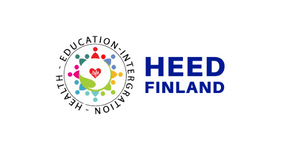Culturally Sensitive Health Guidance and Counselling
Chronic diseases are on the rise, and unfortunately, some may remain asymptomatic for up to ten years, causing significant damage to the body over time. Similarly, the change in environment, and other socio-economic and socio-cultural factors has resulted in many health-related problems and challenges among immigrants in Finland. Regular screenings can catch issues early, allowing for better management and treatment. Also, providing a safe space for immigrants to discuss issues related to their health in an environment where they feel comfortable is an important strategy for building trust between immigrants and the social and healthcare providers.
With the world becoming a global village, cultural sensitivity has become one of the most important 21st-century skills needed by everyone, especially those providing different kinds of services to individuals from diverse cultures. Culturally sensitive health counseling seeks to provide practices and advice tailored to respect and accommodate diverse cultural beliefs, norms, values, and practices. It is not one- size-fits-all, but rather an approach that considers the individual’s unique perspective and understanding of health, illness, and treatment, while also paying particular attention to factors that can influence an individual’s lifestyle patterns and health behaviors. Examples of such factors include but are not limited to language, religion, traditional and healing practices, dietary habits, and cultural beliefs related to body size, family structure, and roles in the family.
HEED Finland provides free, one-hour individual guidance sessions on a wide range of health-related topics as part of the Health is Wealth project. The guidance sessions are held by Emma Tamankag, a professional with close to 20 years of experience as a registered nurse, and 14 years as a senior nurse lecturer, as well as being a trained wellness coach and mediator, and a community leader. During the session, we strive to create a safe and supportive environment where the individual feels comfortable discussing their health concerns within the context of their culture. We ensure that the information and interventions discussed during the session are relevant and meaningful within the cultural context of the individual, which would eventually motivate the individual to adopt healthy behaviors. We work collaboratively with the individual to explore culturally relevant and individualized coping strategies, resources, and solutions to address their health concerns.
Conclusively, the implementation of low threshold and culturally sensitive interventions plays a pivotal role in increasing awareness about various health-related issues among immigrants. This empowers individuals to make informed choices regarding their health and bridges the gap between individuals from immigrant backgrounds and health service providers.
Emma Tamankag
Project Expert for the Health is Wealth project.


